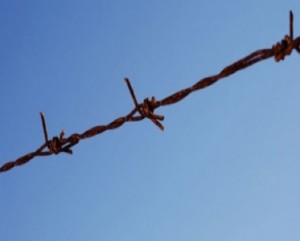According to the UN Convention Against Torture of 1985 (CAT), “torture” is defined as any act which is ‘intentionally inflicted on a person, causing severe physical or mental pain or suffer, in order to obtain from him or a third person, information or confession or in order to intimidate, to discriminate or to punish him or a third person (article 1, §1).
Today International Law and Human Rights Law present legal support for the struggle and prevention of torture. For instance, the Universal Declaration of Human Rights, the International Convention on Civil and Political Rights of 1966, the American Convention for Human Rights of 1969 and the UN Convention Against Torture and others. However, legal support created was not deemed sufficient. It was necessary to create more effective measures to end and to prevent torture.
Then, in 2006 the UN General Assembly adopted a resolution which would become the Optional Protocol of the Convention Against Torture (OPCAT). The OPCAT provided a remarkable measure for the effectiveness of the prevention of torture: it established a system of regular visits which would be undertaken “by independent international and national bodies to places where people are deprived of their liberty, in order to prevent torture and other cruel, inhuman or degrading treatment or punishment”.
In this way, thematic mandates of the Human Rights Council seems to be a good mechanism for the effectuve prevention of torture through the work of the Special Rapporteur on torture (SR). Among the activities of the SR, one can find the urgent appeals, the allegation letters and finally the country visits. By the country visit, the SR can take in account the situation concerning torture, including institutional and legislative factory that contribute to such practices.
To do so, the SR may have freedom of inquiry, especially in terms of access to all prisons, detention centers and places of interrogation. While country visits are considered primary method for achieving first-hand accounts, they can present a lot of restrictions. For example, the visits are undertaken only at the invitation of the Government in question or if the Government accepts the sollicitation of the SR. Moreover, in reality, the freedom of the SR to access prisons and detention centers is often limited by the national authorities, as it was observed by the former Special Rapporteur, Manfred Nowak, in the Report of 2006 about his mission in China.
Nevertheless, the prevention of torture and other cruel, inhuman or degrading treatment or punishment, fortunately is not only paramount in the UN system. It is also prevalent on actors of the civil society, that is persons and entitled bodies on a national level. This perception has already been realized by some NGOs (non-governmental organizations), who were worried about ensuring that international and also national actors had the necessary determination and capacity to prevent torture. It is important to consider here the work of the Association for the Prevention of Torture (APT), a NGO based in Geneva, who elaborated practical guidelines for monitoring places of detention.
These guidelines are not only very useful for the domestic visiting mechanisms but also for the international organizations, NGOs and regional organizations and their field offices. Promoting the capacity of the national bodies and field offices to the visit mechanism is a further support to the prevention of torture in cooperation with the SR’s work.
Nevertheless, the issue of obtaining access to detention places has not yet been covered. It still depends on the collaboration and transparency of the States. However, the behaviour of the States is not often in favour of the prevention of torture. On the contrary, the experience has showed that the cruelest torturers are the States who present themselves as the most democratic countries, but in fact, they are those who lead persons to secret prisons or to other detentions, as the one in Guantamo Bay. The main problem concerning this issue is that the States usually conceal this conduct under sovereignty and invoke reasons of ‘national security’ to refuse cooperating, either to the elimination or the prevention of torture.
Thus, a complete and effective prevention of torture depends indeed on the cooperation of all. The international and national actors, including the United States (as it establishes the article 11 of the OPCAT). Briefly, cooperation is the main word for “the strengthening of the protection of all persons against torture and other cruel, inhuman or degrading treatment or punishment”. It is remarkably evident that we still have a lot of work to do towards the elimination and prevention of torture in the world.
Leticia Sakai
Ph.D. Candidate in International Law in the University Paris 1 Panthéon-Sorbonne in a double certificate system with the University of São Paulo since 2009, Master in International Law and International Organizations in the University Paris 1 Panthéon-Sorbonne in 2009, Bachelor in the Law School of the University of São Paulo in 2006 and lawyer in the São Paulo’s Bar Association since 2007. Already worked to the Permanent Brazilian mission to the United Nations in Geneva, to Human Rights NGOs and to the Office of the United Nations High Commissioner for Human Rights in Geneva. Laureate for the financial supported for PhD Students by the Institute of High Studies of the Minister of National Defense of France since January 2012. Contact : [email protected]
 Le petit juriste Site de la revue d'actualité juridique
Le petit juriste Site de la revue d'actualité juridique






